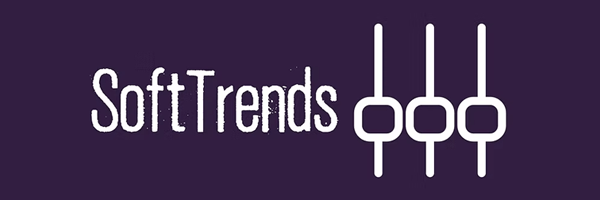From local mom-and-pop restaurants to gas station cafés, local and independent food service providers are cornerstones of rural communities. However, the technology required to stay competitive can be far beyond the capabilities of these small businesses. How can they compete with global chains, which can afford to invest massive resources into digital technology and the infrastructure to support it?
Terebinth was created to solve this problem, and the story of how they used Heroku to give these small businesses a fighting chance will interest any independent small- or medium-sized business (SMB) leader.
Terebinth uses Heroku to help SMBs compete against big chains
Terebinth delivers a comprehensive Digital Consumer Experience (DCE) program that goes beyond online ordering. The platform combines awareness marketing, digital ordering, email and social campaigns, loyalty programs, and digital signage to boost visibility. It improves the in-store experience with integrated menus and signage, makes to-go and pickup orders faster and easier, and unifies customer engagement across every touchpoint.
For independent food-service businesses, it’s a one-stop solution for attracting new customers, encouraging repeat visits, and staying competitive with larger chains. This technology has become essential, yet local gas stations, convenience stores, and restaurants rarely have the resources to manage SEO, digital ordering, or loyalty programs. They also can’t afford to give up 30% of each sale to third-party delivery services.
That’s where Terebinth steps in. With platforms like Heroku and Marketing Cloud, it gives small, rural food service providers the same digital tools larger chains rely on. Its gitt it! app is part of a broader program that covers what independent operators don’t have the time or budget to manage, from ordering and pickup to marketing and signage.
The DCE program also unites many independent stores into a single marketing group, giving them leverage with major brands and suppliers that individual businesses couldn’t achieve on their own. Partners can run promotions with confidence, knowing that brand safety and consistency are built into the Terebinth ecosystem.
There’s an ethical component to our business. We don’t want to nickel and dime our customers. We want to charge a fair flat fee, so managing the cost of our solution is a big reason we chose Heroku.
– Mike Vaughn, Director, Terebinth
Humble origins: It all started with trying to order a pizza
According to Terebinth’s Mike Vaughn, the company’s origin story was simple, “We sat down and asked, ‘How can we make it easier for someone to get a hot, fresh pizza from your local mom-and-pop, as easily as they could find and order from a big chain?’” Although seemingly simple, this question shows that Terebinth is based on deep insight into the technological challenges facing an underserved business sector. They began by mapping the entire customer journey, from discovery to consideration and purchasing the food, and figured out where local, independent stores needed technology assistance.
Taking control of their data: Why Terebinth chose Heroku
Terebinth began by using an existing commission-free white-label ordering platform, developing its own API endpoints to connect the solution to Salesforce and Marketing Cloud. However, Terebinth identified several long-term risks: it didn’t own or control the data, the white-label platform could change its monetization model, and there was no ability to request new features or bespoke changes. The success of the white-label solution gave Terebinth the confidence to invest in its own solution.
We needed to eliminate the risks of working with a white-label solution we didn’t control and take control of our own destiny. That’s why we worked with Heroku to create our own solution.
– Mike Vaughn, Director, Terebinth
When you need to move off white-label solutions, you need Heroku
The team started by reviewing RFPs from several developers and exploring different approaches to a new solution. They were initially skeptical about using Salesforce for app development because of cost concerns, but a discussion with the Heroku team showed how Salesforce API calls and integration with Marketing Cloud could deliver major efficiencies. They also found that building the same functionality on AWS would have cost three times more.
As a small startup, Terebinth didn’t have the resources for a dedicated DevOps team or the expertise to maintain backend systems. Heroku’s platform-as-a-service and support gave them a reliable alternative. Instead of hiring an operations team, they gained the confidence their systems would run smoothly.
This setup let Terebinth focus on building the brand, growing the business, and improving customer service rather than managing infrastructure. Heroku saved both time and money while giving them flexibility to shape their program around customer needs. Their ordering app is now faster and easier to use, and because everything runs on one platform, menu and pricing updates sync automatically across the app, website, and in-store signage.
Heroku and Salesforce are easy to use, and we were able to get up and running for way less than I expected. You hear Salesforce is the Cadillac solution, but it shocked me how affordable it was in the long term, not just in the efficiency of the initial design, but also in long-term maintenance and auto-scaling.
– Mike Vaughn, Director, Terebinth
Long-term success, long-term affordability with Heroku + Salesforce
Terebinth strongly recommends Heroku for its ease of use and surprisingly low cost. It was able to launch quickly and for far less than expected. While Salesforce is often seen as a premium solution, Mike and the Terebinth team were impressed by its long-term affordability—not just in the efficiency of the initial build, but also in ongoing maintenance and auto-scaling.
After spending six weeks reviewing RFPs, they were surprised—and a bit frustrated—that most vendors hadn’t mentioned Heroku or explained the synergies between Heroku, Salesforce, Marketing Cloud, and the ecosystem’s expanding AI capabilities. In their view, any business building its own app and not considering Heroku is missing a major opportunity.
If you want to learn more about the vendor that did recommend Heroku (and won Terebinth’s business because of it), we recommend you visit the Stratis Global customer story.
A million percent, I’d recommend working with Heroku. If you’re making your own app and you don’t talk to Heroku, that’s just dumb.
– Mike Vaughn, Director, Terebinth
What’s next for Terebinth?
As Terebinth helps independent small restaurants thrive in the 21st century, it continues to prepare for the future. Its immediate goal is to continue growing its customer base, servicing more stores in more areas. It’s also looking at new features and functionality, especially around agentic AI and its possibilities for customer support.
Launch your next project with Heroku
How Terebinth did it
- Heroku Platform for developing the gitt it! app
- Heroku Dynos for running the gitt it! app
- Autoscaling for scaling the app during periods of high demand (ex. major sporting events)
- Heroku Connect for bringing together real-time Salesforce data across web, mobile, kiosk, and signage experiences
- Private Spaces for protecting customer data




